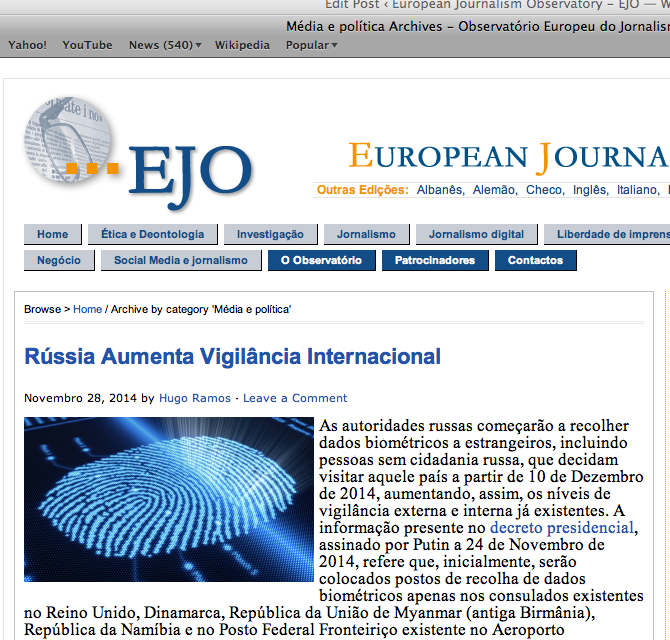Some newsrooms have attempted to exploit this trend by purchasing web space on Google linking to specific, high-frequency keywords such as “Berlusconi” in Italy, “Sarkozy” in France and “Obama” in the US. Alas, this strategy doesn’t always pay off. It’s quite an expensive service and the resulting increase in Web traffic tends to be more short lived than substantial.
Rather than relying on search engines, some newsrooms are beginning to bank on the quality of their online editorial output. In other words, publishers divert more money from their printed newspapers to support their online editions, a trend illustrated by the fact that today, 60 and 80 people work for the online editions of Le Monde and Le Figaro , respectively.
Those newspapers that established an online presence early on are now beginning to meet their economic targets, i.e. many of them are breaking even thanks to the (exponentially increasing) advertising income, while others are expected to follow suit within the next few months. In exchange for this success, website operators must constantly renovate graphics, increase interactivity, update content and, above all, offer first-rate coverage in the event of important breaking news. General elections, major sporting events (like EURO 2008) and political scandals tend to produce a staggering increase in traffic for prominent websites. Offering first-rate reports and articles (free, of course) is another prerequisite for increasing a website’s reputation and success. In times when there are few “big events” to report, the browsing behaviour of online readers continues to be highly unpredictable. While readers may take advantage of certain online offers, they remain a fickle bunch and may be easily lured by other online services, including those of competing news sources. Yet upon discovering a favourable news website, readers have a tendency to return regularly. In some cases, those websites are set up by journalists who left major newspapers, as happened to La Libération , which lost a number of its best reporters to Rue89 , a website that is expected to reach a million visitors by the end of this year, roughly a third of the total readership of Le Monde . A great achievement, indeed. It’s a marvel how difficult and fascinating the life of an Internet reporter has become!








































